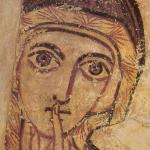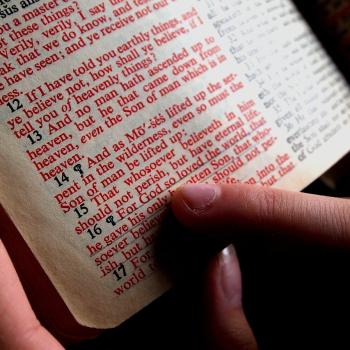Sometimes 1 Timothy 2:9–15 is read in tandem with 1 Corinthians 14:34–35 to make the claim that if Paul commands women to be silent, churches today should not permit them to teach, speak, or lead congregations. I explained 1 Corinthians 14:34–35 in my previous post, and this time we will discuss the text of 1 Timothy.
Incidentally, 1 Timothy 2:9–15 also discourages women from braiding their hair, putting on jewelry with gold or pearls, and wearing expensive clothes. Yet somehow nowadays such prohibitions are often dismissed as culturally irrelevant, while at the same time women keeping silent at church in the same passage is still regarded as entirely relevant! Nowadays, women can earn a Ph.D., D.Min., M.Div., or other higher learning degrees in biblical studies, theology, and pastoral ministry. Something seems terribly wrong, then, when we hear about such a woman being prevented from teaching at her church that happens to be run by male ministers who are less equipped than she is when it comes to teaching the Bible.
Hence, it is important for us to review this passage in 1 Timothy.

The Situation in 1 Timothy
A unique situation arises in 1 Timothy in which widows in the house churches are perpetrating false teachings (1 Timothy 5:5–16; cf. 1:3–7). Given this circumstance, Timothy, who is pastor of the church established in Ephesus, is told in this letter, “I am not permitting a woman to teach and to assume authority over a man” (1 Tim 2:12).*
These women are not to take on teaching roles nor take over male leadership, Timothy’s especially. The decision, it seems, was not meant to be perpetual but had the aim of safeguarding this congregation from the damaging teaching. This situation was doubtless compounded by the problem that (due to no fault of their own) many women in the patriarchal world at that time were not afforded the same level of literacy and education given to men. With this unfortunate setback, these women in Ephesus had become quite susceptible to false teachings.
In case we should think that this silencing was unique to women, we notice that men who perpetrate false teachings in Titus 1:11 were also to be silenced (the adjectives, verbs, and “who”/“they” [οἵτινες] in 1:10–11 are masculine plurals). But somehow every interpreter seems to recognize that the situation in Titus must have been unique. Men who perpetrate false teachings should be silenced, but this does not mean that all men of all churches of all eras can never teach other adults at church again due to Titus 1:10-11. So why is it that the women who were silenced in 1 Timothy for perpetrating false teachings means that all women of all churches of all eras can never teach, or at least never teach adult men?
Does Allusion to the Genesis Creation Make This Teaching a Universal Command?
Those who insist that woman cannot teach often point out from 1 Timothy 2:13–14 that the text alludes to Genesis 2–3. But in Pauline letters the apostle often alludes to or cites Scripture for various reasons, often to instruct, exhort, confirm, or add to something he is writing about. Sometimes he simply makes a practical point from Scripture (1 Cor 9:8–11), or reconfigures it into an allegory (Gal 4:24–27), or uses Scripture to counter an interpretation of another Scripture (Rom 10:5–8), or uses typology (prefigurations) to formulate a warning (1 Cor 10:6–11), or as here in 1 Timothy 2, he uses Scripture to make an analogy:
Adam was created “first,” and so has some sense of priority in this text, just as Timothy should be “first” in terms of leading the congregation rather than surrendering over that leadership to certain widows or women who seem to be trying to usurp his authority. And as Eve was deceived by the Serpent, so certain women in this Ephesian congregation are being deceived by the false teachers who are inspired by Satan (cf. 1 Tim 4:1–3; 5:13–15; Oropeza, Jews, Gentiles, and the Opponents of Paul, 272–78). This text also may communicate a typological warning—as long as the Ephesian women are influenced by deceptive teachings, they will fulfill the hypothetical typology of Eve being deceived and leading Adam (the men of the congregation) astray. Therefore, they should not be allowed to teach in this church.
We see Paul use the same Genesis story in 1 Corinthians 11:7–9, this time to support that women should wear head coverings but not men. Most westerners today write this passage off as not culturally relevant today even though Paul alludes to Genesis here. It is explained as a circumstance unique for that time but not for ours. How is that Paul’s use of Scripture from the same creation story could be ignored in 1 Corinthians 11 but must be unquestionably obeyed as universal in 1 Timothy 2? My advice: either accept them both, or consider them both to be unique situations that are culturally dated, but please don’t be inconsistent by appealing to Genesis in one text but not the other!
Bottom line: There is no indication that because of the creation story no woman under any circumstance should ever be permitted to speak, teach, or lead men at church. Although the old created order of the firstness of Adam is recognized by Paul, he also teaches that the old creation order is passing away in light of the new creation in Christ that will eventually come to realize fully “there is neither Jew nor Greek, there is neither slave nor free, there is not male and female; for you are all one in Christ Jesus” (Galatians 3:28; cf. 2 Cor 5:17).
Paul and Women of the New Creation
Consistent with the new creation model, Paul’s churches enable and endorse women leaders such as Phoebe and the Apostle Junia (Rom 16:1–2, 7), and teachers such as Prisca/Priscilla (1 Cor 16:19; Rom 16:3–5; Acts 18:26). We know from Paul and the New Testament that women were permitted to prophesy and speak under the Spirit’s inspiration (1 Cor 11:5; 14:26; cf. Acts 21:8–9; Rev 2:20).
This was perhaps encouraged because in the new era of the Spirit’s outpouring, which is to continue until Christ returns, “your daughters will prophesy” is to characterize the church era (Acts 2:17). This is compatible with the Jewish roots of Christian faith, which endorsed women prophets such as Deborah, Huldah, and Anna (Judges 4–5; 2 Kings 22:14; 2 Chronicles 34:22; Luke 2:36–38).
Given the positive words that Paul writes about women in Romans 16, Galatians 3:28, and elsewhere, the content in 1 Timothy 2:9–15 should not be used to claim that women of all churches of all eras must not speak, prophesy, teach, or lead in the churches, or that they could only teach other women and children.
We add to this that, unlike the ancient patriarchal world, women in our own era can receive the same biblical and theological education that men do. They are just as competent as men, then, to teach in a classroom, lead a church, or preach from the pulpit.
Notes
* On the present tense epitrepô/ἐπιτρέπω as timely and specific rather than universal, see Philip B. Payne, Man and Woman: One in Christ, 319–25; and Ben Witherington Letters and Homilies for Hellenized Christians 1:226–27.
Some interpreters suggest that a disciple of Paul’s wrote 1 Timothy or collected Pauline notes to compose this letter. Others claim it to be a pseudonym. If so, this may get Paul “off the hook” as the author, but anyone who has respect for the New Testament canon of Scripture will still have to explain the meaning of this passage since it is canonical.














